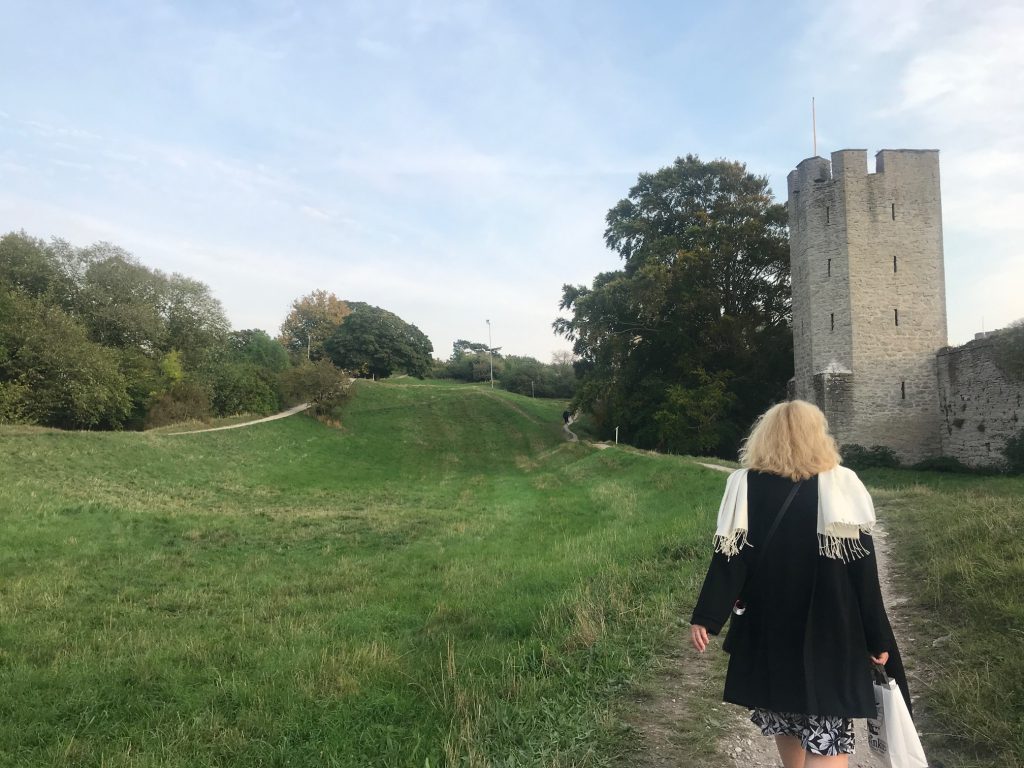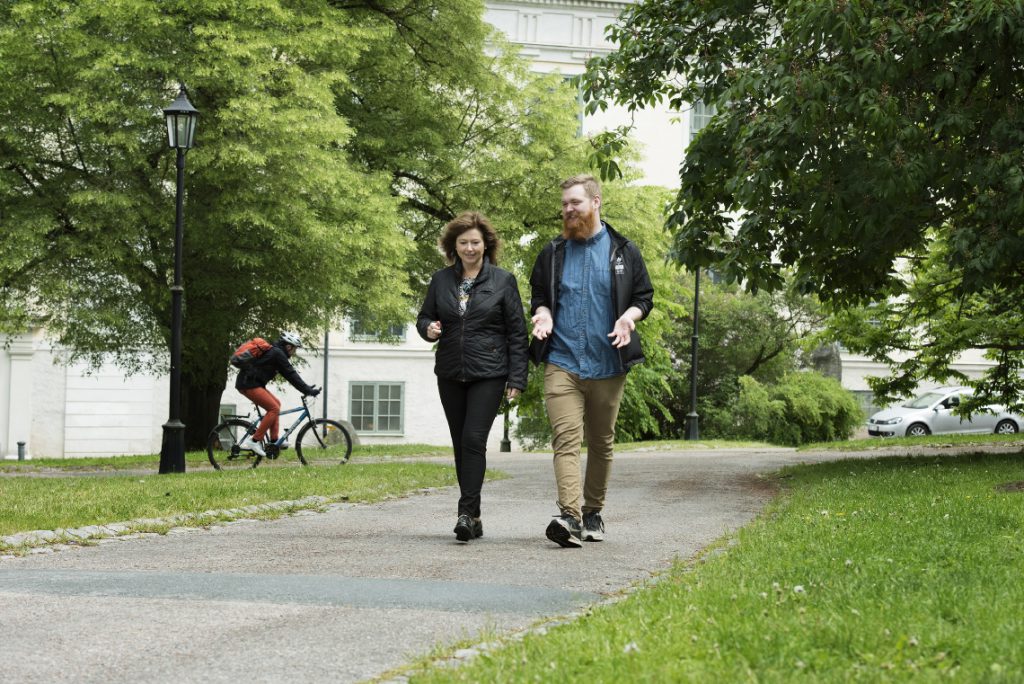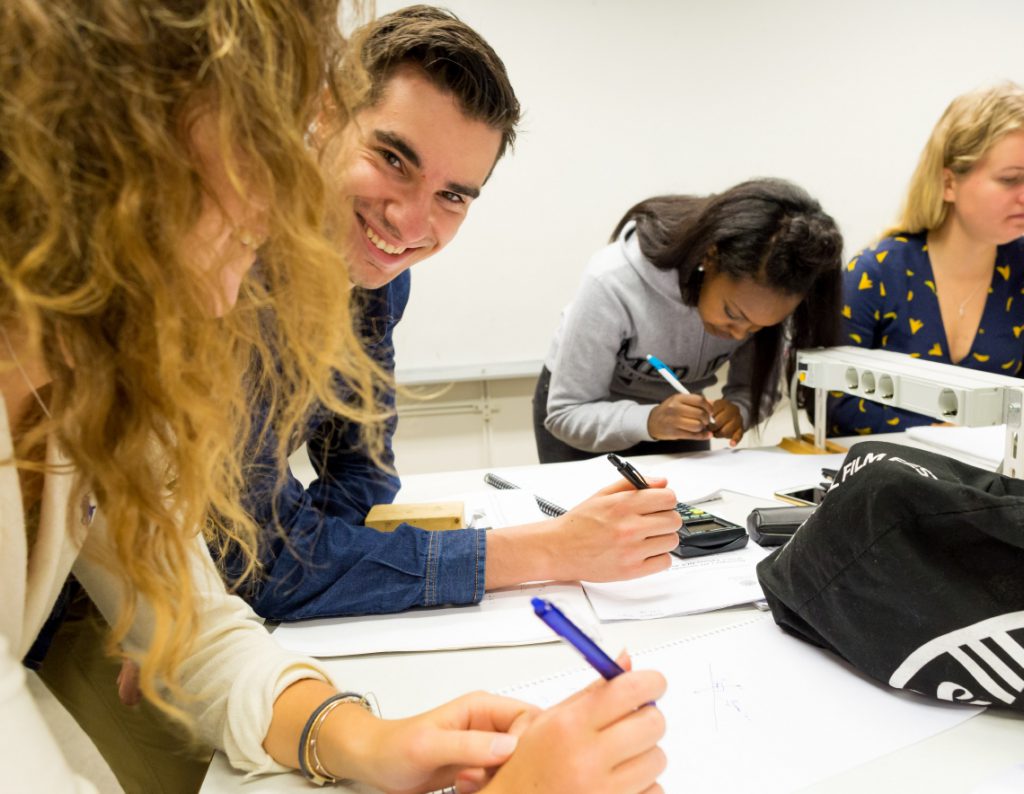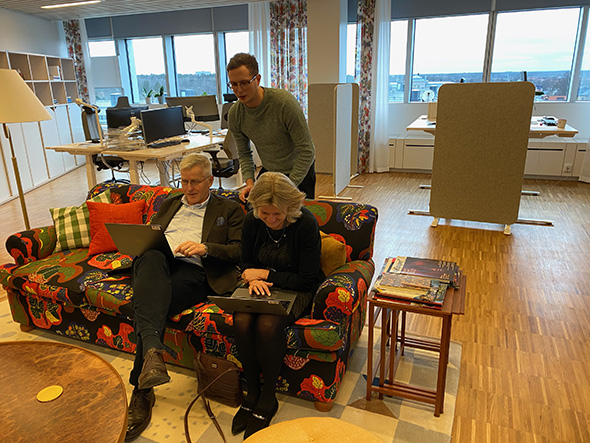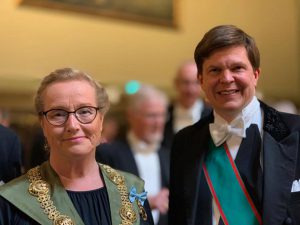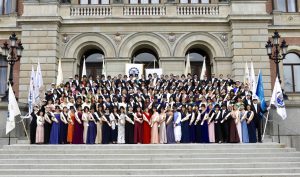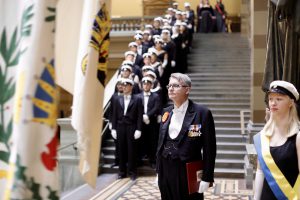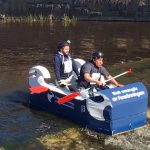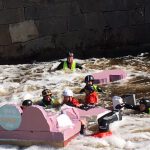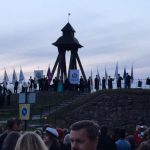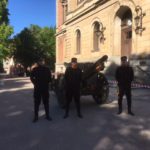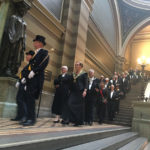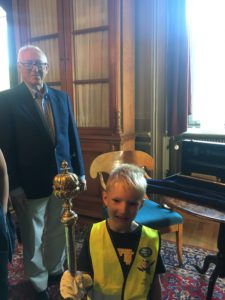Several trips to Campus Gotland were planned for the spring and autumn, including visits by the University Board and the International Advisory Council. Then came the pandemic. But this week the time had finally come to visit Campus Gotland. In the course of a busy two-day programme, prepared by Adviser to the Vice-Chancellor Olle Jansson, I met researchers, teachers, administrative staff, the county governor, representatives of the region and students. As always after a visit to Gotland, I returned to Uppsala full of inspiration and new insights.
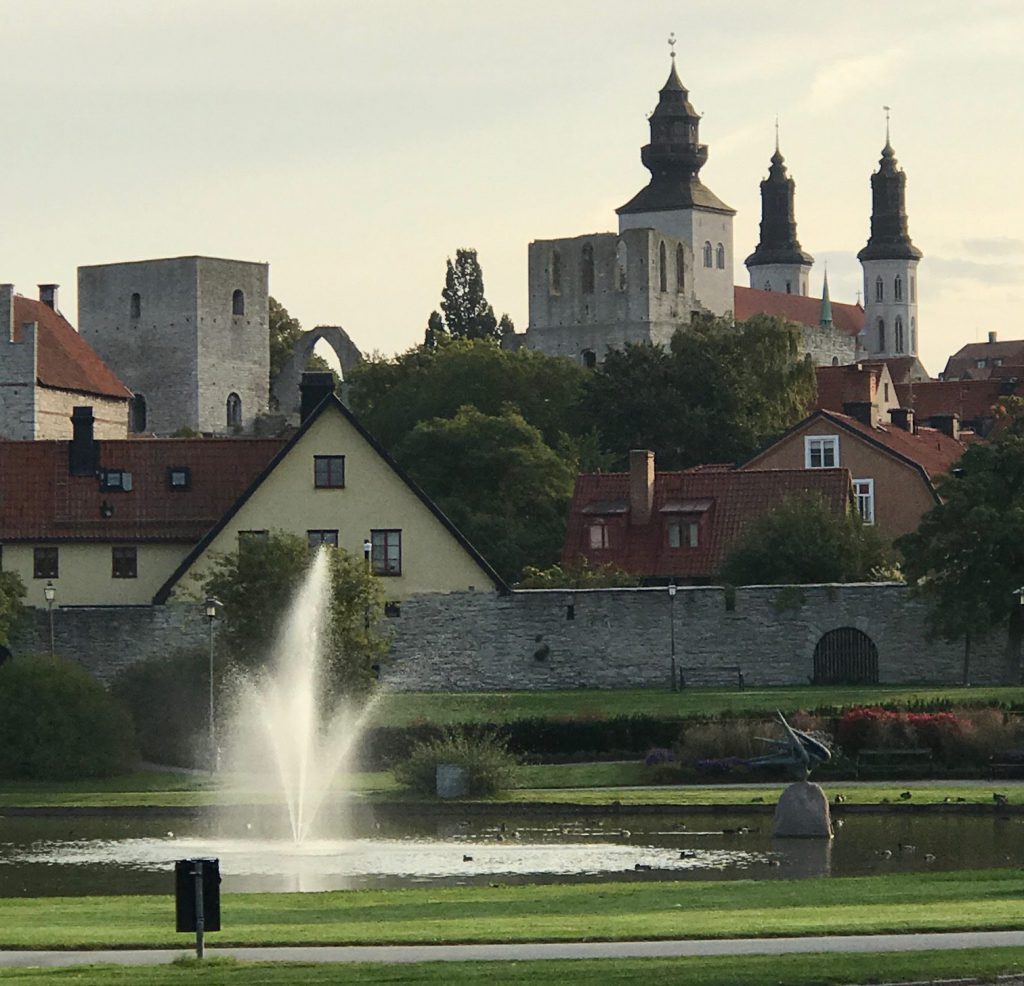
We often say Campus Gotland is a place where we can try out new ideas in a smaller setting. Ideally, the experiences gained and lessons learned can be transferred to and advance all of our large University. At Campus Gotland, considerable parts of the University join up: 22 departments and the administration operate in the same corridors and congregate in the same lunchroom. New possibilities for collaboration, cross-disicplinary education and research open up when people meet in everyday life.
The new graduate school in sustainable development is one such inspiring example. I had the opportunity to meet head of research and director Jenny Helin and to see the fine, newly renovated premises with their view of the harbour. The graduate school is in the process of setting up, with several hundred applications for 12 new doctoral student positions that are now being evaluated and will be divided between the five research projects. The research environment built up will be multidisciplinary, with projects ranging from the energy transition in society, where Gotland has been selected as a national pilot, to investigation and questioning of the very concept of sustainability. Different meanings of the word affect what comes out of sustainability efforts in practice. The graduate school will also engage in external collaboration and combines regional relevance with international excellence.
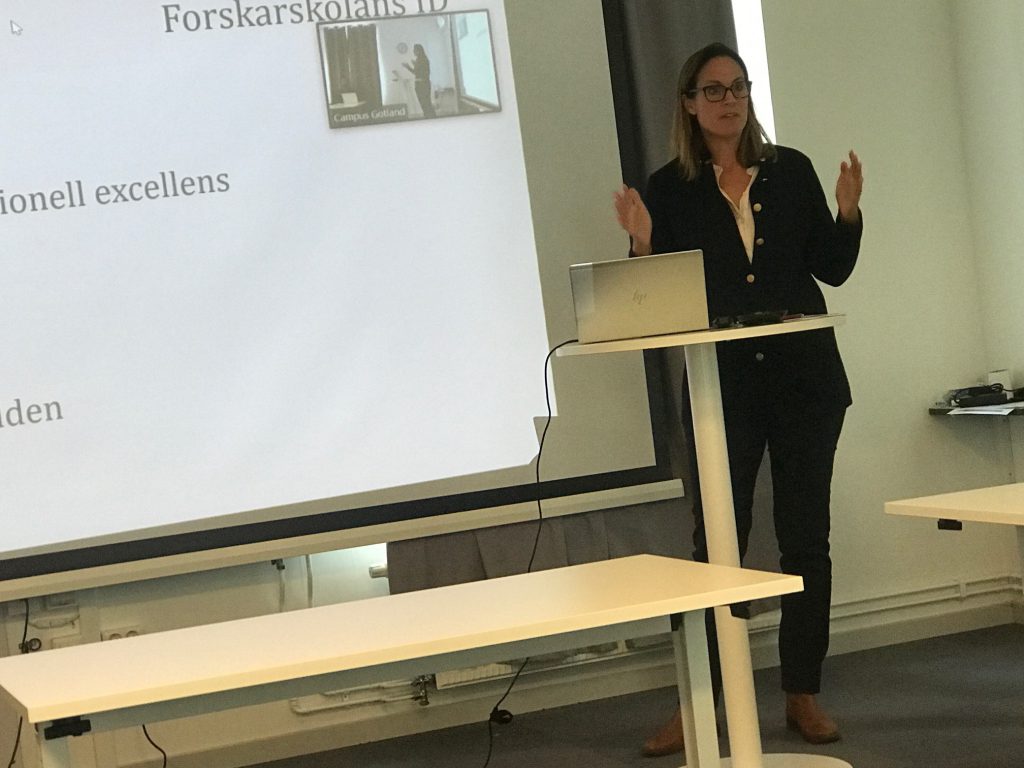
The graduate school will provide an arena for encounters not just between different disciplines but also between different doctoral education traditions and different administrative processes from the home departments of the supervisor team. Challenges are bound to arise and those involved are prepared to take them on, though of course it would have been easier without the pronounced differences found in our large, decentralised University. I sense the existence of a problem-solving tradition at our newest campus, which we need to draw on. These experiences can be useful for the entire University; it is a key challenge to try to break down thresholds that put unnecessary obstacles in the way of cooperation across boundaries, in Uppsala as well. The graduate school will have all 12 newly admitted doctoral students in place in the new year and I look forward to following this exciting and innovative venture.
Other points on the programme on the first day included lunch with County Governor Anders Flanking and a presentation of Campus Gotland’s work with international students. After that, we discussed experiences from this period of the coronavirus and the application of recommendations from the Public Health Agency of Sweden and the Vice-Chancellor. Here too it became obvious that the differences that exist between departments and faculties in Uppsala come to the surface in Visby and grate unnecessarily. Both on Gotland and in Uppsala, we need more dialogue and cooperation about how we can learn from one another and eliminate unnecessary differences, a point that has also been brought up by the students’ unions in Uppsala.
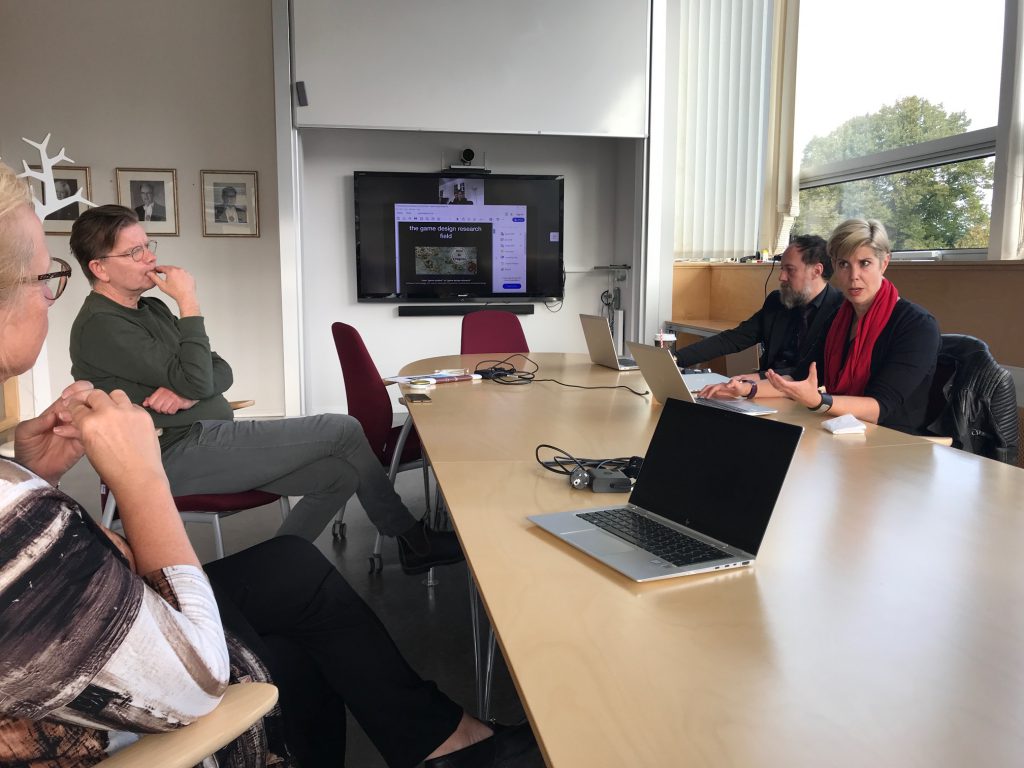
On the second day, I met representatives of the Department of Game Design, a field that has obviously matured as an academic subject. The programmes attract students from all over the world who have done much to give the department a good international reputation by distinguishing themselves in competitions at gaming conferences. Doris Rusch, from MIT and Chicago, came to Visby for a conference and chose to stay. With her international networks and strong belief in the department’s potential, she is now helping to build up the research side in close collaboration with the already successful educational programmes. See an interview with Doris Rusch here.
I then met representatives of our partnership with Region Gotland – a collaboration with great potential where we are testing ways forward to find what works best for both partners. My stay concluded with a visit to Rindi students’ union where I heard about their vital experiences of involvement to promote student participation and of studying at Campus Gotland. I could see that our students are the people who can give us the most telling examples of ways in which our complex and compartmentalised organisation leads to unnecessary and baffling complications in day-to-day life on campus.
